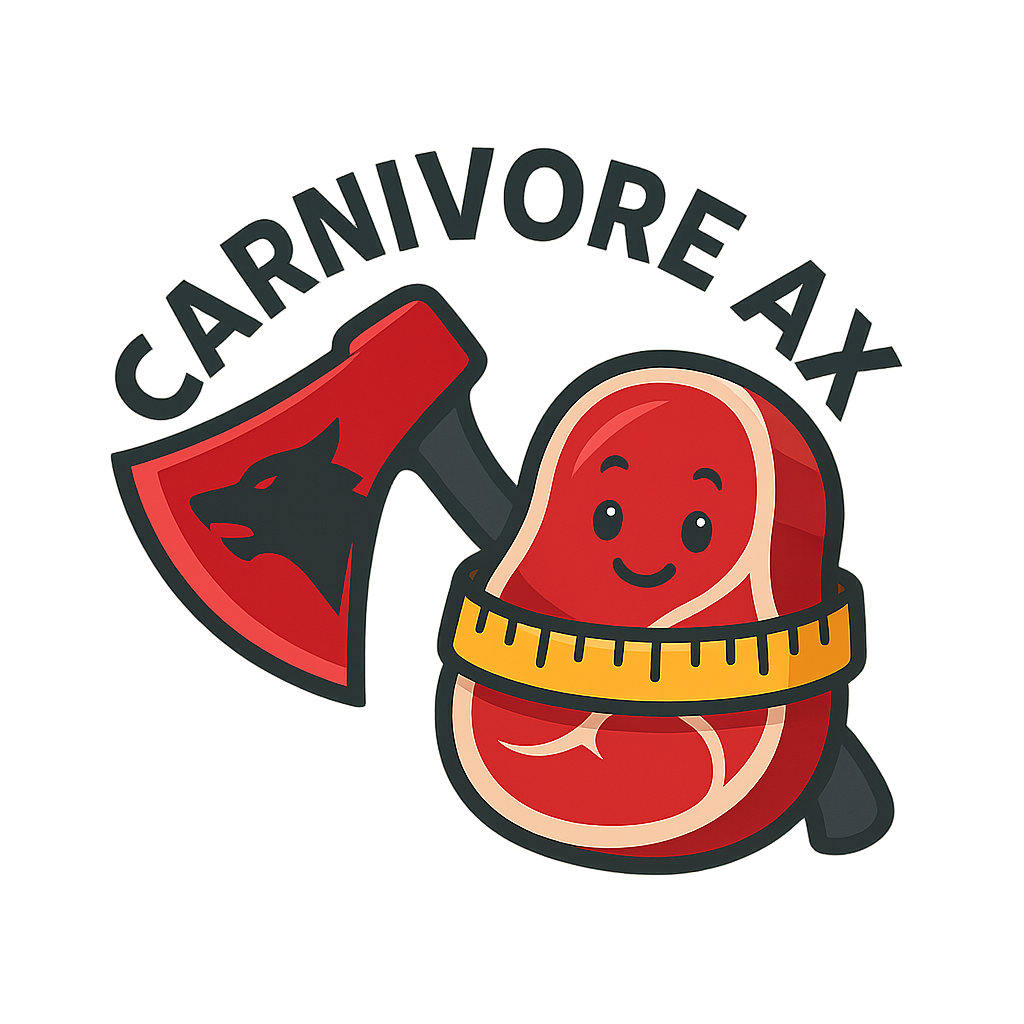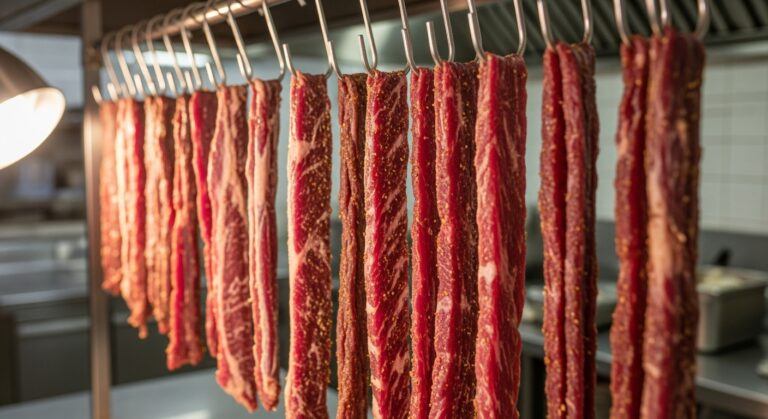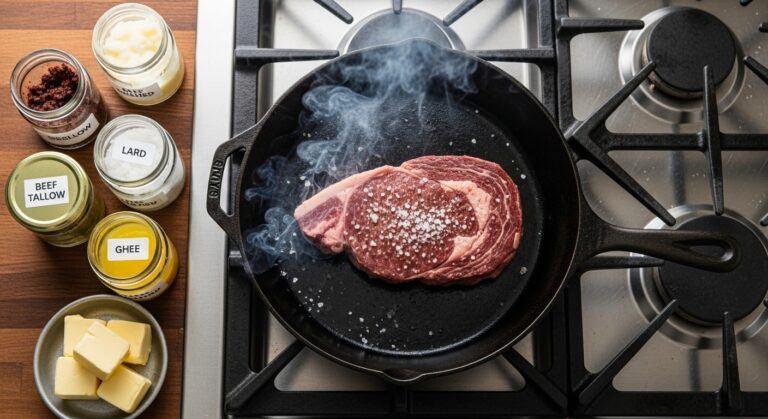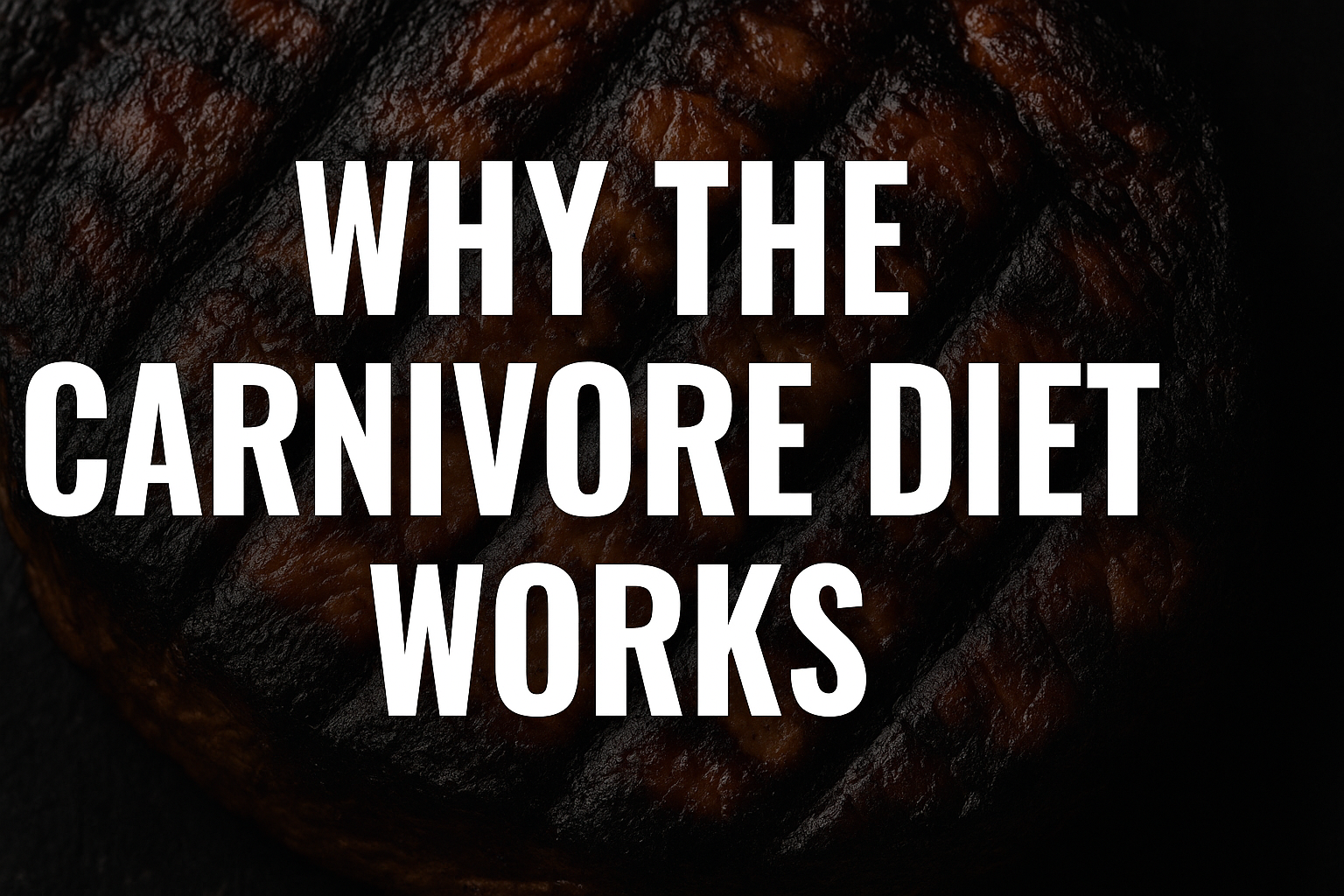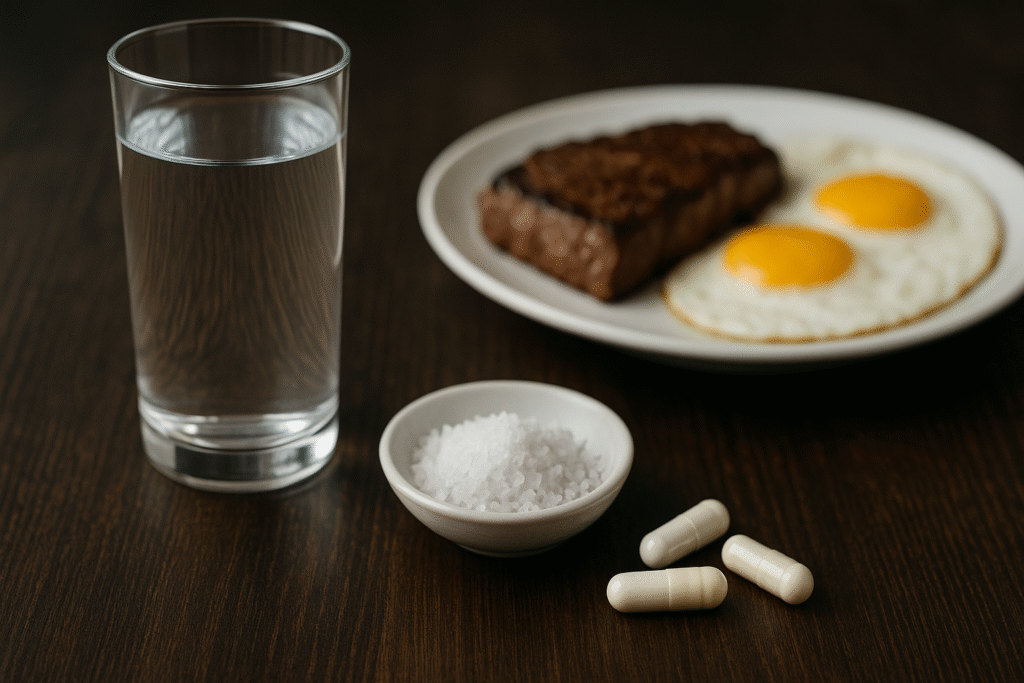
Key Takeaway:
The carnivore diet only works if you stay hydrated and replace lost minerals. Balancing water, sodium, magnesium, and potassium prevents fatigue, muscle cramps, and brain fog — making the diet sustainable long-term.
Why Water, Electrolytes, Magnesium, and Potassium Matter on the Carnivore Diet
If you’ve been eating carnivore for more than a few days, you’ve probably noticed it hits your body differently. The first week feels like a detox, and in many ways, it is. You’re cutting out carbs, plants, and fiber. Your body shifts how it handles energy, water, and minerals. That’s why hydration and electrolytes aren’t just “nice to have” on carnivore, they’re non-negotiable.
I learned this the hard way. The headaches, muscle cramps, and fatigue that hit during the first few weeks weren’t from the diet failing. They were from missing the basics: water, sodium, magnesium, and potassium. Once I fixed that, everything changed; my energy came back, my focus sharpened, and I didn’t feel like I was dragging myself through the day.
Let’s break down what’s really going on and why these things matter so much.
What Happens When You Cut Carbs
On a typical diet, your body stores glycogen, which is basically, sugar reserves in your muscles and liver. Each gram of glycogen holds about three grams of water. When you drop carbs, those glycogen stores empty out, and all that water leaves your body. That’s why you can lose five pounds of “weight” in a few days, it’s water loss, not fat.
The problem? Along with that water goes a lot of electrolytes. Sodium, potassium, and magnesium help your muscles contract, your nerves fire, and your heart stay in rhythm. When those levels fall, things get rough fast.
That’s when the so-called “keto flu” or “carnivore flu” kicks in with symptoms like fatigue, dizziness, brain fog, irritability, and muscle cramps. It’s not your body rebelling. It’s your body running low on fuel and minerals.
Why Water Alone Isn’t Enough
Most people think, “I’ll just drink more water.” And sure, you need it, but plain water can actually make things worse if you’re flushing out electrolytes and not replacing them.
When you’re eating only meat, you’re not getting potassium from bananas or magnesium from spinach anymore. Meat has some minerals, but not enough to fully cover what you’re losing.
So yes, drink plenty of water, but you have to balance it. Think of it like a formula:
Hydration = Water + Electrolytes.
Skip either part, and your system starts to short-circuit.
Sodium: The Unsung Hero
Let’s start with salt. When people complain about low energy or lightheadedness on carnivore, nine times out of ten it’s from low sodium.
Carbs help your body retain sodium. Without them, your kidneys excrete it faster. That means you’ll need more salt than you think.
I add salt to my food like it’s my job, and not the “dash on top” kind of salt. I mean real amounts. Some people mix sea salt or electrolyte powder into water once or twice a day. Others sip on homemade broth. Either works.
Roughly, you’re looking at around 4,000–6,000 mg of sodium a day on carnivore, depending on your size and activity. That’s about 2–3 teaspoons of salt. Sounds like a lot of salt, but if you’re sweating, working out, or just living without carbs, you’ll need it.
Potassium: The Balancing Act
Potassium keeps your heart steady, your muscles from cramping, and your energy stable. When it drops too low, you’ll know it, because your legs tighten up, you feel weak, and even standing up too fast can make you dizzy.
Since most high-potassium foods are plant-based (bananas, potatoes, avocados), you’ll need other sources. Luckily, you can get some from:
- Beef and salmon
- Eggs and chicken
- Electrolyte powders with potassium citrate
- Potassium supplements (but be careful, go slow and don’t overdo it)
Aim for 3,000–4,000 mg a day, but if you’re using supplements, stay below 1,000 mg unless your doctor says otherwise. Too much potassium can be just as dangerous as too little.
Magnesium: The One Everyone Forgets
If you’re feeling restless, cramping at night, or struggling to sleep, that’s magnesium calling for help. It’s critical for nerve function, muscle relaxation, and mood.
On carnivore, magnesium intake drops fast because it’s found mainly in nuts, seeds, and leafy greens, all off the menu.
You can find small amounts in meat and fish, but most people need a supplement. Magnesium glycinate or citrate works best for absorption. I take around 300–400 mg daily, usually before bed. It helps with sleep, muscle recovery, and that “wired but tired” feeling that sometimes hits early on.
Electrolyte Support That Actually Works
You don’t need fancy packets or overpriced “bio-hacking” drinks (and no, I’m not dropping $5 on pink Himalayan unicorn salt). A few good options that actually help:
- Homemade mix: ½ teaspoon salt + ¼ teaspoon potassium chloride (like LiteSalt) + squeeze of lemon in water.
- Broth: Bone broth or salted meat broth gives sodium, collagen, and trace minerals.
- Electrolyte powders: Look for ones without sugar or seed oils — LMNT, Redmond Re-Lyte, or Keto Chow are solid picks.
I usually mix one bottle in the morning, one mid-afternoon, and sip water throughout the day. When I skip it, I feel it, sluggish, tense, or just “off.”
How Much Water Is Enough?
There’s no magic number, but most people do well around 3–4 liters per day. More if you’re active, sweating, or live in a hot climate.
A simple rule:
If your mouth is dry, your urine’s dark, or your energy tanks then drink more. If you’re constantly peeing clear every 20 minutes, dial it back a little.
It’s all about balance. Too little water and you’re dehydrated. Too much without minerals, and you’re flushing your electrolytes down the drain.
My Results After Getting It Right
When I first went carnivore, I felt amazing for a few days but then I crashed. Once I figured out I wasn’t just tired, I was depleted, things flipped.
After upping salt, adding electrolytes, and taking magnesium daily, I noticed:
- No more leg cramps at night
- More steady energy
- Better sleep
- No brain fog
It’s not some miracle fix, it’s basic biology. The carnivore diet strips away a lot of what the average diet hides. Once you get your hydration and minerals balanced, your body runs cleaner and smoother.
Bottom Line
The carnivore diet changes everything about how your body processes water and minerals. Ignore that, and you’ll crash and burn.
Stay hydrated. Keep electrolytes balanced. Supplement magnesium and potassium.
It’s not optional it’s the foundation that keeps the whole thing working.
If you’re serious about trying carnivore long-term, don’t just focus on what’s on your plate. Pay attention to what’s in your glass. That’s where the real difference is made.
Author Note

I did not choose this diet because it sounded fun. My thyroid failed me. Graves’ Disease wrecked my health and packed weight onto my body. I tried everything people said would work. It didn’t.
When I switched to meat, my body fought less and healed more. I want that for you as well. You deserve to feel strong again. Being a carnivore is how to make it a reality. Join the journey! ~Michael
